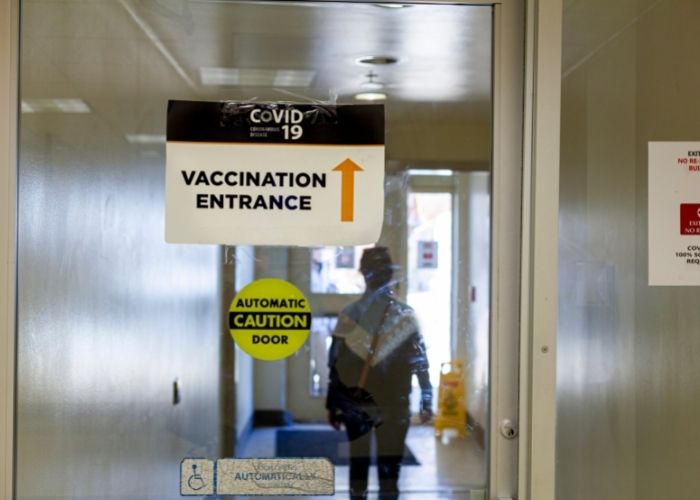MADRID – Residents of Spain who have not accepted the invitation for vaccination and who have changed their minds can now visit one of the vaccination sites in 3 of the 17 autonomous regions without an appointment. Furthermore, 13 regions have now started vaccinating 12-17 year-olds.
By vaccinating without an appointment, the Spanish government hopes to make use of the millions of doses of vaccines. In the regions of Catalonia, Andalucia, and the Balearic Islands, residents can spontaneously visit vaccination sites. Although, only people older than 40 years in Andalucia must make an appointment first.
Teens up for vaccination in almost all of Spain
The regions of Murcia and the Basque Country have called on unvaccinated young people. Specifically, this, to make use of the 30,000 and 57,000 (respectively) vaccines available in these areas. Moreover, as of this week, the entire vaccination target group, i.e. everyone from the age of twelve, in the regions of Madrid, Catalonia, the two Castiles, Extremadura, La Rioja, the Basque Country, the two archipelagos, Murcia, Navarra, Valencia, and Aragón can be vaccinated against covid-19. Furthermore, the Valencian Regional Council will send a new invitation with vaccination dates to all non-vaccinated residents. Only the regions of Galicia, Asturias, and Cantabria have not yet started vaccinating the teenagers.
90% of people over 40 fully vaccinated
According to the latest data from the Ministry of Health in Spain, 90% of people over 40 will be fully vaccinated. Likewise, 60.6% of the entire population will also be fully vaccinated. Consequently, this means Spain remains the frontrunner in Europe. Only in Canada is this percentage higher (of the 50 most populous countries).
Furthermore, the willingness to vaccinate among young people appears to be high in Spain. The regional government of Galicia called on young people between the ages of 16 and 22 to make a vaccination appointment. As a result, the system came to a standstill due to overload. And in seven hours, vaccination sites were full and the number of available vaccines for this group was already covered.
Vaccination rate will fall
Last week, 2.9 million shots were administered across Spain. That is a million more than the week before when fewer doses of vaccine were available. However, the question is whether the weekly record of 4 million jabs achieved in June, will be broken in August. In all likelihood, from now on there will be more vaccines available than people to vaccinate. Therefore, the vaccination rate will slow down. The Catalan Ministry of Health signaled in the past two weeks more people are not attending their vaccination appointment.
Pandemic control instead of herd immunity
Therefore, the coming weeks will show whether Spain has been able to fully vaccinate 70% of the population before September. Currently, the vaccines available are not yet approved for children under the age of 12. And this group makes up 11% of the population. As such, vaccination coverage will increase at a slower pace from 70%.
Taking into account the children and the group of people who choose not to be vaccinated, the vaccination rate in Spain is expected to be a maximum of 80%. Consequently, this jeopardises herd immunity. Because according to scientists, virus variants have ensured that not the initially stated 70%, but at least 90% of the population must be immune. Therefore, virologists and epidemiologists prefer to talk about getting the pandemic under control (with fewer cases that are also less severe), than about achieving herd immunity.


